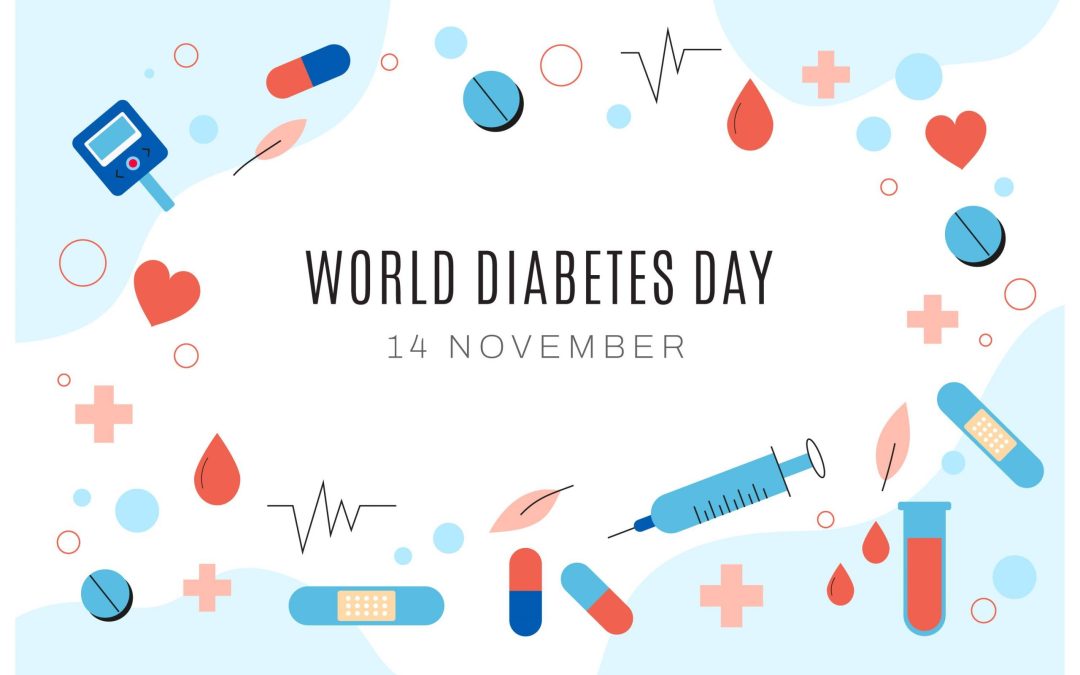On World Diabetes Day, the global community unites in a concerted effort to raise awareness about a condition that affects millions worldwide. Diabetes, a chronic metabolic disorder, demands attention not only for its increasing prevalence but also for its impact on the well-being of individuals and communities. While medical advancements have improved diabetes management, nutrition remains a cornerstone in the effective control and prevention of this condition. Today, we delve into the critical relationship between diabetes and nutrition, emphasizing how empowering communities with the right knowledge can pave the way for better health outcomes.
Before delving into the pivotal role of nutrition, it’s crucial to grasp the fundamentals of diabetes. This multifaceted condition disrupts the body’s ability to regulate blood sugar levels effectively. Type 1 diabetes arises from the body’s inability to produce insulin, while Type 2 diabetes involves insulin resistance or insufficient insulin production. Both types necessitate lifestyle adjustments and conscientious management to prevent complications.
Raising awareness about diabetes entails fostering an environment of understanding, empathy, and support. Community-driven initiatives play a pivotal role in disseminating accurate information about diabetes, dispelling myths, and breaking stereotypes. Educational campaigns, local support groups, and interactive workshops are essential in empowering individuals to make informed decisions about their health. By nurturing a culture of empathy and knowledge-sharing, communities can become powerful allies in the fight against diabetes.
One of the most influential factors in diabetes management is nutrition. A well-balanced diet, rich in essential nutrients and low in simple carbohydrates and sugars, can significantly contribute to stable blood sugar levels. For diabetics, creating a meal plan that focuses on whole grains, lean proteins, and plenty of fruits and vegetables is essential. Portion control and mindful eating practices are equally crucial in maintaining a healthy weight and preventing complications associated with diabetes.
Nutrition Tips for Diabetics:
- Embrace whole grains: Incorporate whole grains like quinoa, brown rice, and oats, which are rich in fiber and promote stable blood sugar levels.
- Opt for lean proteins: Choose lean cuts of meat, poultry, and fish, or opt for plant-based protein sources like legumes and tofu.
- Load up on vegetables: Fill your plate with an array of colorful vegetables, aiming for a variety of nutrients and minimizing starchy vegetables like potatoes.
- Choose healthy fats: Incorporate sources of healthy fats like avocados, nuts, and olive oil while limiting saturated and trans fats.
- Monitor portion sizes: Be mindful of portion sizes to regulate calorie intake and prevent spikes in blood sugar levels.
Empowering individuals with the knowledge of nutrition’s impact on diabetes not only fosters healthier lifestyle choices but also promotes a sense of control over the condition.
As we commemorate World Diabetes Day, let us recognize the critical role of nutrition in the management and prevention of diabetes. By fostering a culture of awareness, empathy, and proactive lifestyle choices, communities can become powerful advocates for change. Let us continue to prioritize education, support, and access to resources, empowering individuals to make informed decisions about their health and well-being. Together, we can work towards a future where diabetes management is not merely a struggle but an achievable goal with the right knowledge and support at hand.







